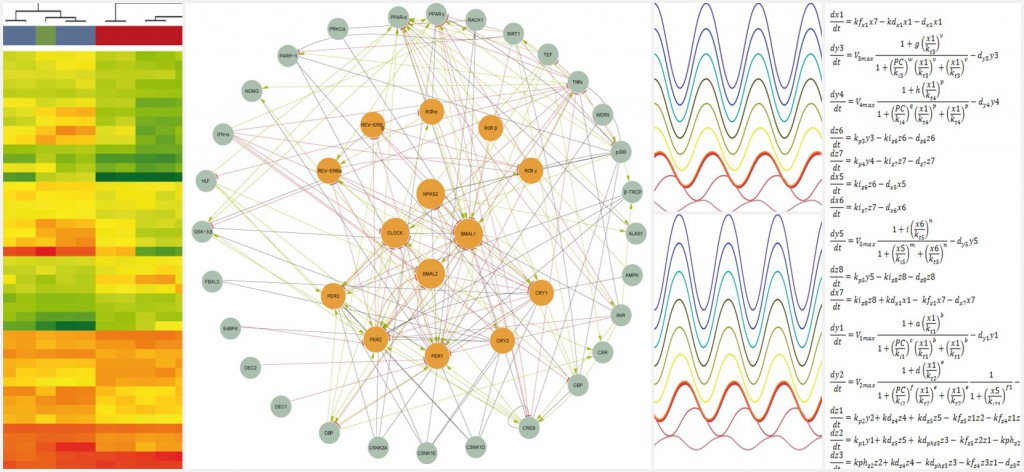The Mammalian Circadian Clock
All cells hold an internal clock able to generate daily rhythms. These endogenous rhythms are detected in 10% of all genes [1] and provide a way to react to external clues, to anticipate behaviour and to adapt molecular processes to specific day-times. Malfunctions of the circadian clock have been reported in the context of many diseases and disorders. Cancer is one such disease, although the mechanisms involved are not yet clear. Clock-controlled genes (CCGs) are involved in many molecular processes essential for malignant transformation of tumour cells [2]. The coupling of the circadian system to tumour progression is still an unexploited field of research. We use a systems biology approach involving wet-lab experiments, including genome wide screening of gene expression of human and murine cells and tissues, bioinformatics and computational models, to understand the dynamic interplay between cancer and the clock [3].

With such a methodology we aim to answer the following questions:
How are the pathways, which connect the circadian clock to cancer, regulated?
Is this regulation specific for different stages of tumour progression?
Can a circadian signature for tumour progression be defined?
With our research, we expect to be able to provide valuable insights into the mechanism of circadian regulation of tumourigenesis per se and to contribute to a better understanding of the cancer-clock system. As a perspective, work from our group may contribute with valuable information to the improvement of diagnosis and prognosis in cancer, potentially leading to the identification of novel drug-targets and optimization of therapy.
1. T. Bollinger, U. Schibler, Swiss Med Wkly. (2014) PMID: 25058693
2. S. Sahar, P. Sassone-Corsi, Nat Rev Cancer 9, 886 (2009) PMID: 19935677
3. A. Relógio, //et al//., PLoS Genet (2014) PMID: 24875049